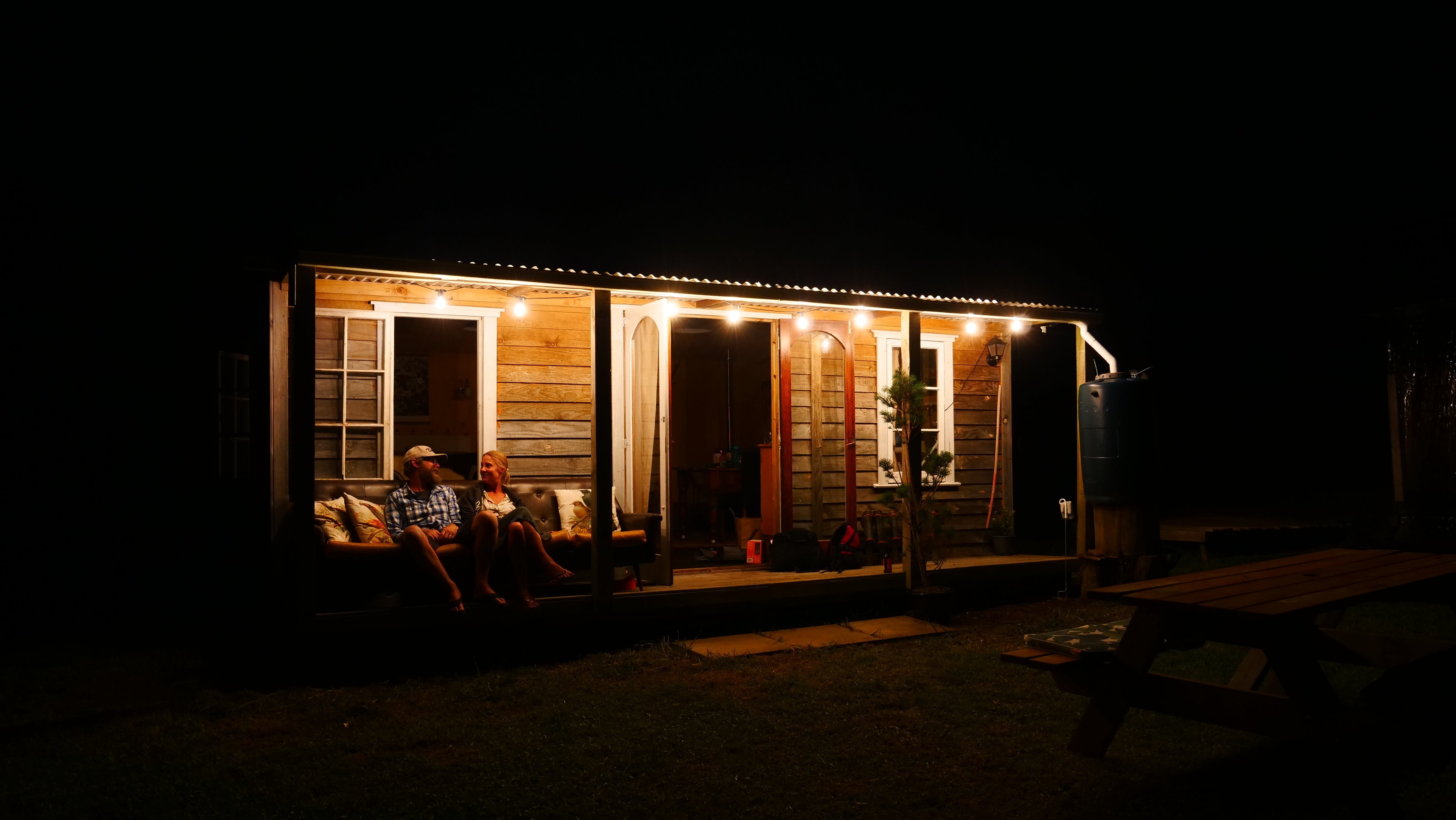If you're dealing with power outages at your rural property, or you've just purchased a piece of land with no services, you might be thinking about going off-grid with solar.
To work out whether an off grid solar system is the right choice for your lifestyle, the first thing to understand is the difference between off-grid and grid-tied solar.
Grid-tied solar is what you normally see in cities and suburbs - places where mains power is available, and the solar is intended to either supplement or be supplemented by the grid. Energy from the panels runs whatever is needed at that point in time, and the excess is fed back into the grid, typically with none being stored. When there's a power cut, your house will also have no power.
Off-grid refers to a standalone power system that exists where no other power is available, which you typically see in motorhomes or isolated cabins. Energy from the panels is stored in the batteries, and then drawn out as needed. As it is not connected to the grid, excess power is not sold back to the grid, and power cuts have no affect. Supplemental power is typically supplied by a petrol/diesel generator.
Need more info on these terms? Read this.
When should I go grid-tied?
Usually, you should go grid-tied when you already have access to the grid, or the cost of getting connected to the grid is affordable. Your goals include saving money on power bills, or selling power to the grid. You intend to charge an electric vehicle, power electric heating or cooking, or run other high draw items. You want to be able to use as much power as you want whenever you want, without worrying about the sun.
When should I go off-grid?
You have no other access to power, the cost of getting connected is prohibitive, or you can't rely on the grid. Your goals include powering a normal household, or powering remote utilities such as water pumps. You intend to run normal household appliances like a fridge and lights, but you will be using alternative energy such as gas, wood burning, or evacuated tube solar for cooking, space heating and water heating. You understand that you may need to time your power usage around the sun, and may have to limit or change your current habits to adapt to the limitations of solar power. We recommend reading this article to understand the compromises needed for more affordable off-grid set ups.
Can I take my house off the grid?
If you're looking for the most cost-effective choice for power, it doesn't always make financial sense to take your house off-grid, in our experience. Typically, a grid-connected house is not designed to be energy-efficient, mostly due to the installation of electric water cylinders and ovens. This means a very large solar power system will be required to maintain your current use, and thus the expense of the solar takes decades to pay off when compared to what you would pay in power bills.
However, if you have other reasons for taking your house off-grid (such as an unreliable grid-connection), and the power hungry appliances can be replaced with alternative energy as mentioned above, taking your house off the grid may be a good choice.
You may also find that the most economical solution for you is to have an off grid solar system wired into only a few sockets in your house, so it can be used as a back up system. This means you could keep just the important appliances (like a chest freezer) running through a power cut.
What can I power with off-grid solar?
Depending on your budget and your power needs, this can vary significantly. Our most popular kit, the Bach Kit, can comfortably run the typical electrical usage of two adults full time, when heating/cooking is on alternative sources. This is what a typical day might look like during a sunny period in winter (3 hours of sunlight, with the batteries fully charged from the previous day's use). We recommend reading this article about what can and cannot be powered on solar.

How does my power use need to change when transitioning to off-grid solar?
In addition to changing heating/cooking, there are other things that you need to consider changing. This includes things like power tools, which are best switched to battery powered, and weather-dependent use of high draw items such as kettles, toasters, and microwaves, which are best used only during periods of good sun. When choosing new appliances, you want to prioritise energy efficiency. We recommend reading this article about getting used to off grid power.
You will have to be prepared to reduce your overall power consumption during extended periods of overcast weather to ensure the batteries can be fully recharged. Deep cycle batteries, the most popular for off-grid use, will have the longest lifespan when they are not discharged past 50% of their capacity, and are not left partially charged for extended periods of time. This means you may have to cut back on power to allow your batteries to fully recharge first. Lithium batteries give you a bit more freedom here.
Learn more about how to work out your usage for choosing a kit here.
If you've got any questions about this, feel free to get in touch! We're happy to talk through it.


